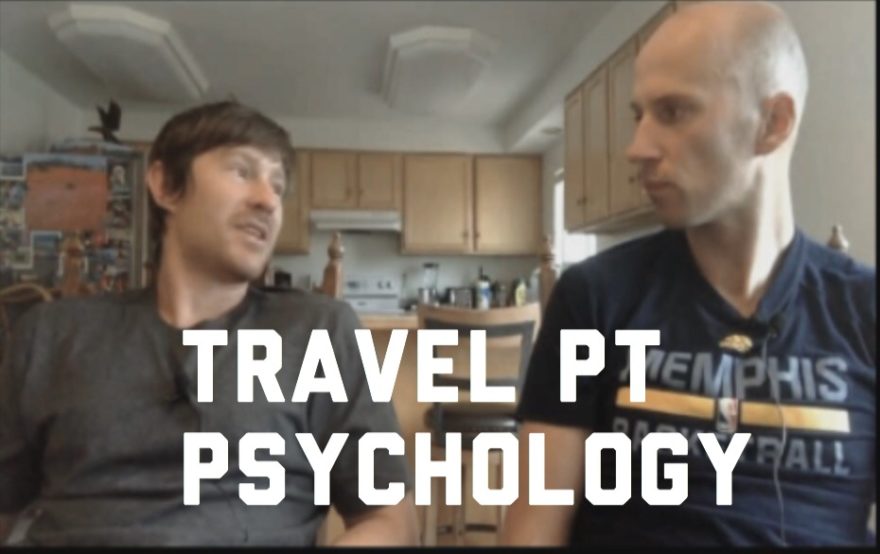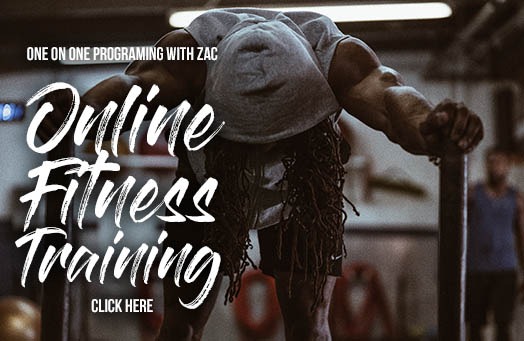I recently had the pleasure of talking about all things travel PT and psychology with my dear friend, Randy “The Dolph” Bowling.

Randy has been a traveling physical therapist for almost 10 years now, and has a substantial knowledge base on the traveling process. He also is very much into psychology, and thought me a few things.
You can find Randy on facebook and Instagram.
Here were some of the topics discussed:
- Why Randy chose to become a traveler
- How to best interact with travel companies
- How to network with other travelers
- The need for negotiation
- What do travel contracts look like
- What does the interview process look like
- What makes a good traveler
- Randy’s thoughts on psychology
- How important is focusing on pain?
- Why Randy is a big fan of Louis Gifford
Here is the video, audio, and scroll down to read the modified transcript.
Enjoy!
Here were some of the links mentioned by The Dolph
Fordyce’s Behavioral Methods for Chronic Pain and Illness
Clinical Reasoning for Manual Therapists
Pain-Related Fear: Understanding and Treating the Complex Patient
The Seductive Allure of Neuroscience Explanations
Table of Contents
Modified Transcripts
Zac: Hello you beautiful, sexy, outstanding people. This is Zac Cupples from zaccupples.com, and I’m bringing you another movement conversation with my good friend, the legend himself, quo board extraordinaire, straight out of Arkansas, “The Dolph,” Randy bowling.
Say hi to the people Randy,
Randy: Hey my name is Randy.
Zac: The reason why I wanted to bring Randy on for this movement conversation is because Randy is incredibly experienced at being a travel PT, and he knows a lot of the ins and outs.
He’s also is into some psychology shit, so wanted to pick his brain on that so those are the two topics for today, and I couldn’t find a better guy than Randy.
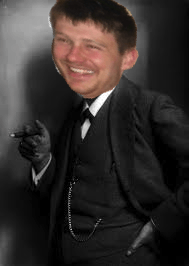
And also, he’s my bro, and bros be talking about all types of things, so who knows where this is going to go.
As for all these movement conversations, I don’t have specific questions. I never gave Randy anything in advance. We’re just gonna go off the top of the dome like some good freestyling back in the day. Think hip-hop circa 1994. Maybe some Big L shit.
Randy, tell us a little bit about yourself.
Randy: I got my physical therapy degree from the University of Central Arkansas, and started traveling October that year.
I meant to do it for two to five years, and now it’s been over 9.
Zac: He’s almost on the decade level for this travel stuff.
Randy: I should have rounded up, it would sound better.
Why did Randy decide to travel?
Randy: Two reasons:
One, I wanted to see the country a little bit.
Second, I wanted to pay off my loans. So, I wanted to make a little more money, see the country, and it’s worked.
Zac: Did you have any other possible options that you were exploring before?
Randy: I did not. I just started up. One of my buddies from the year ahead of me had traveled and got me in touch with his company, so I pretty much started.
How Randy Selects a Location
Zac: Where have you all traveled to?
Randy: first job was in Big Spring, TX, then I went to Hobbs, NM, Ruidoso, NM, Tillamook, OR, Carthage MO, South Hill VA, Roma, TX, a couple other small towns in Texas for that same assignment, then back to New Mexico, then Arizona, and Idaho somewhere in there.
Zac: World traveler, or at least US traveler.
Randy: Yes.
Zac: And now Page, America
Randy: Yes sir yes sir.

Zac: So when you’re picking all these places, you’ve been kinda all over the place.. What what is your criteria and process when you are selecting a spot that you want to be, and maybe discuss what that looks like when you’re interacting with the company.
Randy: What I look for is small town hospital-based outpatient clinics, and I’m sure most of your listeners probably are more geared towards outpatient, so if you want good jobs that give you plenty of time with patients and lets you have freedom to do what you want to do, small town hospitals are the way to go.
As long as you don’t mind being lonely. Sometimes, in small towns, you’re gonna be by yourself a lot—watching movies, eating by yourself.
Zac: Unless you’re in Page, America, then you’re just gonna do all types of fun stuff.
Randy: Exactly. Page is a great spot.
Zac: It sounds like that wasn’t always what you were searching for in a travel gig, so what were you searching for before?
Randy: When I first started I just wanted outpatient, but I took a couple of privately owned clinic jobs, and those we’re not so great. I’ve worked home health and some acute care, but preferred outpatient.
Why Randy Likes Outpatient
Randy: I like outpatient because if they don’t want to see you they just don’t show up. In acute care you have to go stick your head in the door, even if they don’t want you to be there.
Zac: Very much so. It gives you a little bit more freedom.
Randy: The people who are going to go and want to be there. Home health is nice too because they’re usually excited to see you come, so it has some perks too.
Navigating Travel Companies
Zac: Have you always worked with the same company then?
Randy: I have worked for two different companies, Aureus and Delta Health Care Providers.
Zac: What were your first interactions like when you were interacting with some of these companies? What led you to switching? What are you looking for when it comes to finding a good company?
Randy: Initially I didn’t really care about insurance cuz I didn’t have any health issues, so I just was primarily looking for somebody that could get me a job in it either an area I wanted or a job that I thought would be cool and pay well.
That’s the reason I switched the first time because I found out they they could be paying me more and should be paying me more, so I switched, and the company I was with said “hey we can’t match that,” but eventually I switch back to them.
Zac: What were some of the conversations like that you had with these companies when you were switching back and forth?
Randy: Basically, I explained to my recruiter at the time that this is how much they can pay the job have this is how much they can pay and she said “well, let me see what we can do.”
And she said we can do this much, and it wasn’t quite enough for me to stay with them so I switched the first time.
Zac: So you used a little bit of negotiation tactics?
Randy: Yes and I’m terrible at negotiating, but you should. You should always talk to two or three recruiters, especially when you’re starting.

Travel Therapy Contracts
Randy: The main thing for me is that I should have negotiated more earlier on, and I wouldn’t have taken those private clinic jobs.
Zac: Let’s talk a little bit more about the negotiation side of things.
Randy, in terms of things that you may have negotiated now, or in terms of your contract structure, is there anything that you would have done differently knowing what you know now?
Randy: Well, the thing that led me to the biggest amount of change that I saw in pay was talking to other therapists, and as a traveler sometimes you’re on a job and you’re the only traveler, so you can’t talk to other people.
So if you do find yourself in a position where there are three or four other travelers, you get to be good friends with them, start talking to them about money. They’re usually pretty cool about telling me what they’re making and then you can find out “am I where I should be.”
Also your boss says sometimes will tell you if you get to be good enough friends with them. They’ll kind of tell you what the pay rate is, and if you know that and that kind of gives you an idea of what could be out there, that you’re not getting.
Zac: So basically you should probably be a good dude and hang out with your peeps.
Randy: Yes.
Zac: You know this is one of the reasons why I want this conversation with you is because you’ve done this so much longer, that you know how some of these ins and outs in this in this field work in travel PT.
Now what about in terms of the specifics of contracts. Now I know in early in your career you elected to have them find your housing. For those of you people who don’t know, with travel PT, you have a few options in terms of how you can structure your contract.
It’s not just the the total lump sum. There are some other benefits you could potentially have or not have. Randy, you’ve been on both sides of that coin, so why don’t you go ahead and talk to us a little bit about stipends versus having the companies search for your housing.
Randy: Usually if the company searches for housing they’ll put you in a nicer place. Well, they definitely put me in a nicer place then I would find for myself sometimes because they want to keep you working for them and they will make sure you have a place that’s ready for you. They’ll cover internet, cable, things like that. It’s less of a hassle. That way you can just show up and it’s usually ready to go.
Sometimes there might be a day or two delay. If they can’t find something furnished, then they’ll furnish it for you and it’s it’s simpler.
You don’t take home quite as much money, but it’s also much easier just to show up, move into the place and you don’t have to set anything up.
Zac: How much of a difference would you say there is in terms of take-home pay, and mind you people, that the stipends that you get for traveling are tax-free, so you’re gross to take home is very similar.
There’s a slight difference in terms of taxes just based on your hourly pay. Depending on how you structure your contract versus the situation that Randy is talking about if you find your own housing.
You don’t have to mention specific numbers, but I mean would you say?
Randy: I think initially the first time I switched they paid me $10 more an hour I think that was tax-free. But since then I we’ve made some different changes and I started getting a bigger chunk of that tax-free.
Zac: In that amending, you’re saying that that’s in terms of some of the negotiation stuff you’ve done?
Randy: it’s kind of evolves when you’re with a company for a little while. You’ll find yourself either staying the same slowly losing a little money, and sometimes it works the other way to where you take a job that pays you a little more and just based on kind of how that works.
They know you’re not gonna want to take much less than that, so they try to find you something close to that.
But I’ve had a couple of years where it seemed like where I was losing a little bit of money.
Zac: Why do you think that is?
Randy: Because I’m a poor negotiator.
Zac: Way to talk ownership, Dolph!
Randy: Hey I’ve learned a little something from living with you.
Zac: It’s not me, it’s Jocko Willink. #disciplineequalsfreedom
Deciding on a Travel Clinic
Zac: What kind of questions are you asking the clinic you are potentially working at for your travel assignment? You obviously had some not-so-great experiences, so where did you error in that process?
Randy: I think it’s just I ignored the signs. I knew they probably weren’t gonna be the best jobs and I just took them anyways.

Zac: So what what signs did you see?
Randy: Usually they will be pretty upfront with you and tell you how busy or not busy you’re gonna be, so if you ask “how many patients am I gonna see in a day” and “how much time will I have with them” they’ll answer.
Earlier on sometimes I took jobs just cuz I maybe wanted to go somewhere or for other reasons, and then you get a job when you’re seeing three or four people at a time, and they’re just miserable.
Zac: So there’s a lot of times with some of the selection in these jobs there’s kind of a trade-off between location versus pay versus quality of care that you could potentially give or not.
Randy: That’s correct.
Now in outpatient it seems like rural areas you generally can give a better quality of care and have more time with patients.
Zac: What about with the home health and other jobs that you’ve worked that weren’t outpatient? Would you say that that was the same as well?
Randy: I only took one job that was strictly home health and one job that was strictly acute care. Most of my other jobs have been sort of a combination like here in Page; a little bit of acute care, a little bit of outpatient, or strictly outpatient
Zac: Was the home health also rural area?
Randy: Yeah it was. It was Tillamook, OR. It was a very good setup for home health. They only expect I a full day versus five patients a day. The only bad thing was that I had to fill out the Oasis. So if you take home health, you should try to negotiate that you don’t have to do the Oasis.
Zac: You can negotiate that?!?!
Randy: I think my buddy did. He’s not as a traveler, just doing PRN work in Texas.
Zac: Really?!?!
Randy: Yeah.
Zac: Because I thought the Oasis was a mandatory thing you have to do.
Randy: Well, the nurse that admits can do that so if it’s somebody that’s just coming off of a total hip or a total knee, and they don’t really need nursing care, then they may say PT can see them. Or if it’s just generalized weakness coming out from the hospital they may say nursing is going to be involved.
But in the home health situation the nurse can go in and do the admit.
Zac: The Oasis is the worst documentation I’ve seen.
I saw one patient in home health once. And the reason why it was only one patient was because the company didn’t put anyone on my schedule after that, and I’m like “well, this is silly. Why am i doing this job?” and I quit and they were upset that I quit.
I don’t know. Maybe there was poor communication or something like that but it was bizarre.
Other Contract Pieces to Consider Negotiating
Randy: You can negotiate sometimes with the traveling company and get continuing education money or if you’re going to extend you’ll need this much time off, and maybe negotiate getting something paid for.
Back to home health someone who is not a traveler would get paid more for an eval compared to a regular visit. Same thing with the Oasis. I think you could get paid a little more. You could say you’ll do the Oasis but you need to pay me more for that because it’s gonna be much more time-consuming.
Zac: So have you negotiated for some of those things yourself?
Randy: That’s just kinda what I’ve heard other people get.
Zac: On the more days off side of things. Obviously we’re very #blessed in Page, America, where we can kind of take off as much time or as little time as needed because Kai is awesome. I’m going to have her on here one of these times because she’s got some good stuff, but do you feel like other clinics that you’ve worked at or other places have that same flexibility?
Randy: Not quite as much flexibility as we have here because Kai will pretty much let you off whenever you want. If I know that I’m gonna need time off I just put it in the contract and I generally don’t like to take that many days off unless something comes up. So, if I know I need to leave or go home and visit family or take care of things, then I’ll try to write it up into the contract where I have this week off or these two days.
Zac: Have you ever done it where like you can get just have two weeks of
flexible time off?
Randy: I’ve not. I think some people have done that probably in the past.
Zac: The big crux of this you beautiful, sexy, people is that you you have a lot of wiggle room in terms of your negotiations with things, and it’s not just travel pt but that’s all PT jobs, so don’t be afraid to ask for what you want and what you need in order to be successful.
Any other travelling pearls or like any other things that you wish you would have known going into this?
Randy: Just don’t take his job if it doesn’t sound good to you. Don’t feel the pressure to take a job because there’s always gonna be more. The worst case scenario is you just take a few extra weeks off.
Dealing with the Potential Loneliness of Travel PT
Zac: Lonely is probably not the word, but you get a lot of alone time as a travel PT. How do you recommend someone who’s in that potential scenario deal with it? What do you do to make sure you don’t go crazy?
Randy: Well, it usually doesn’t bother me. I’ll just go to the movies and watch a movie by myself or go out to eat by myself, but there are certain people that don’t handle being alone very well.
You should still travel or at least give it a shot. You may do two or three assignments, and decide is not for you.
Zac: Or maybe you just go to a location where there’s people.
Randy: Yeah, but even when you are at a location where there’s people, you’re still in a new place by yourself, and not everybody is great about going out, making friends, and that sort of thing. That’s some people don’t handle the isolation so well. Or miss family, miss friends.
Zac: You plan on sticking around this travel gig for a minute?
Randy: I said two to five years and I should at least get to ten right?
Zac: At least! What keeps you going?
Randy: That feeling of knowing there is some place else to see that I haven’t been.
Zac: You’re quite the adventurer.
Randy: I try to be.
Zac: Dolph and I go on some great hikes, fam. That’s one of the added benefits about being a traveler. You can see a lot of cool places, cool things, and meet cool people.
How Did Randy Get into Psychology
Randy: I’m trying to think exactly when I first really got into that. It might have been when I went to the first San Diego Pain Summit. There was a guy named Eric Krueger who gave a presentation, and he was I think in school at the University of New Mexico, and he gave a really good presentation.
I didn’t know who he was, didn’t know anything about him, but one of the presentations stood out to me and it was more from a “how do you approach people from a psychological standpoint.” and so that got me into reading a few more things.
Then you realize that sometimes you might be doing somebody a disservice if your primary objective is just to eliminate their pain. If you’re focused only on their pain they may never get better. They may never get back to actually living life, and it kind of frees you up a little bit when you know I don’t have to change the pain before I get them doing something.

Zac: So then what what was the crux of the talk? What was the lightbulb thing for you during that talk that made you switch to the shift of focus on, I hate to say function, but function, and purpose, and movement, versus focused on pain?
Randy: I don’t know if just the talk did that. It was just the other stuff that I read and books that I found. Realizing that at a certain point sometimes with people with chronic pain, another test, finding something that’s wrong with them, isn’t really going to help them.
But if you can get them to realize that they can begin to do some of the things that they’re either afraid to do, or just haven’t done because they quit doing it two, three, four, or five years ago and hasn’t made it into their head that it’s a possibility for them.
It doesn’t mean that you tell them the pain is unimportant, or that it’s just imagined, or any of those things. That there’s some things that are tossed out that come across the wrong way to people.
But if I can get you to do an hour of something that before you could only do for minutes, and your pain is still the same level, you got better even though your pain didn’t improve. If you can play with your grandkids, and you still have the same level of pain that you had just sitting on the couch.
And I guess it goes back even farther than that talk by Eric Krueger. I bought this book Clinical Reasoning for the Manual Therapists. There was something written by Louis Gifford and I had two patients around that time after I read the little essay that he had in there, and one of them was a school teacher who felt guilty because she was overweight, and was so scared to do things. Told me she was scared to go shopping, scared to clean her house, and I just told her I just said hey it’s okay to go shopping. Go shop! She’s like “I’m gonna get mad at you if I have pain.” I’m like “go shopping and get mad at me.”She went shopping, she was happy, and she did fairly well.
Then a couple months later I was on a new job, and there was a lady, she wasn’t my patient, she was low 40’s, probably 41, and I just saw her for one visit after somebody else had started with her. I didn’t get to work with her again after that, but she started listing off all the stuff she didn’t do anymore. She said I don’t even bend over to tie my own shoes anymore, and so I just kind of asked her I said “hey did that help you?” And she said “no it didn’t,” and I said “well maybe you should start doing some of those things.”
Kind of forgot about her and didn’t think too much about it.
Couple weeks later, I walked by her when she was working with the other therapists, and she said “hey that helped me more than anything else.”
Zac: So then what were you like before Louis Gifford changed your life?
Randy: Well sometimes you’re a little scared of the pain for them. Not just them being scared of it. You think you’re doing something wrong if they hurt, and you can be, but not always.
Sometimes, you have pain, you’ve had it for a while, getting back to life, just doing general activities around your house, and just living life, having fun with friends and family sometimes is not gonna be the most comfortable. But if you remove yourself from life, you don’t get better. Your pain rarely improves because you start staying at home, not hanging out with friends and family, not going bowling, not playing basketball, lifting weights, and all the things you used to do that were fun for you.
Zac: If you can get your people to understand that pain and tissue damage aren’t the same thing, it’s groundbreaking. That’s groundbreaking for a lot of people, and it’s unfortunate.
I mean this was true when I was in PT school, and I’m sure because you’re so much older than I am when you were in PT school, but they don’t really teach you that concept.
Randy: No, and it’s been around for a while.
Zac: Yeah definitely pain fibers. I never heard of nociception in PT school, not once.
Randy: Seems like they might have mentioned.
Zac: Yeah, maybe at UCA they were a little bit more up in that regard. Not that St. Ambrose wasn’t. I thought they had a wonderful manual therapy program, and I learned a lot of good things, don’t get angry. And actually, Adriaan Louw was there, but he didn’t really speak as much when I was there as he does now. So I feel cheated (I’m just kidding).
So then what is in terms of some of the resources you had mentioned after you heard Eric Krueger talking, after you got some exposure to Louis Gifford, what are your top three resources that were most salient for you?
Randy: I think you can’t go wrong with Fordyce’s Behavioral Methods for Chronic Pain and Illness it’s really good read.
Zac: You got to say the the one story.
Randy: In the intro?
Zac: Yeah! that still sticks out with me a little bit.
Randy: So Fordyce was going to treat this patient in an acute care setting, and before he went in to see them, he had a consultation with the doctors and the other medical providers that were gonna go in, and he said “anytime this guy mentions his pain, we’re just gonna look out the window because he wouldn’t get up out of bed, wouldn’t do anything.” So he said “every time he brings up pain, we’re just gonna ignore him, turn, look out the window.”
So they do that a few times and the guy catches on pretty quickly because it’s obvious. And he’s like “I know what you guys are doing,” but it still didn’t matter. He started getting dressed and getting out of bed.
Zac: Well it’s amazing how much you can develop cognitive associations that can perpetuate pain, you know? And maybe it’s “I am feeling this” and therefore when I see you doing this activity reinforces that response. It’s Pavlov’s dogs essentially. It’s the same thing. That type of conditioning is still relevant in in pain, and it’s one of the factors that can lead to chronic pain, which I’m going to be talking about in my talk! Just a heads up!
What were the other couple books?
Randy: Pain-Related Fear is what I’m reading now.
Zac: What are you getting out of that?
Randy: I’ll let you know when I finish.
Zac: You mean you don’t have any insights now fam? You’re about halfway through ain’t you?
Randy: Well, one of the things that I thought, and I sort of started the process with a lady today,they had people rank activities based on how much fear they had to do them. And it was fear all of harm, not fear of pain. Because it’s hard to have somebody disprove that it causes pain.
But if you set them up and they think that they’re paralyzed or that they just their backs gonna fall into or something, then you can set up an experiment. Have them try the activity. Even if it hurts they’re like “oh, I’m ok.”
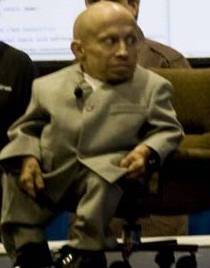
Zac: That’s interesting. So really, this book and it sounds like some of the approaches that you’re mentioning, are not necessarily geared at addressing the pain component of chronic pain or persistent pain, but it would be addressing all the other factors that could potentially perpetuate that—be it fear, be it anxiety, be it whatever.
When you’re approaching a patient, you’re trying to address a lot of those other areas in hopes that I can reduce the threat of pain, which is in the central focus.
Randy: Yeah pretty much. If you took somebody that’s really fearful, really anxious, and you get them to do something, then they get to see that the bad, negative result they were so concerned about didn’t happen, that’s much more likely to create a long-term change then you’re just telling them that “hey you can go pick up that 50-pound kettlebell.”
But if they go do it and they’re expecting something catastrophic to happen and it doesn’t, then they’ve just learned “hey, I’m not as fragile as I thought I was.”
Zac: So then how do you handle a situation where you have them try the activity in question and they do get a negative result? Maybe not paralysis or something like that, but maybe their fear matches the result that happened. How do you navigate that type of scenario?
Randy: It’s tricky. You either try to figure out another way to show them that they’re still okay, that they can do something, or you just may have to say “hey, I started you out a little too far. Let’s back off a little bit. Reapproach it again. Start with a lower load. Start with a different task, and just say “hey that was my fault.”
Take ownership!
Zac: Love it! So essentially, you’re still trying to keep the movement in question as a focus of the treatment, but maybe you’re changing something contextually, or something that reduces the potential of getting into that situation or that scenario; whether that’s load, whether that’s positioning, whether, that’s body mechanics whether that’s…
Randy: Yeah. You can take them out of the position if standing and bending hurts get them in quadruped and have them bend. Let them see that “hey my back can bend; maybe bending putting all my weight on it right now is a little painful, is a little too sensitive, is something I’m not ready to tolerate yet,” but get them to do the activity. Figure out a way.
And sometimes, you can’t. Sometimes, people are just not going to get better.
Zac: That’s very true. That’s a hard thing to swallow. That you’re not gonna get everyone better, but it sometimes happens.
It makes me think a lot of the patients who I’ve worked worked with over my experiences where it just wasn’t happening in it for a multitude of reasons.
Randy: Yeah. It’s extremely frustrating. It’s gonna happen.
Zac: It’s gonna happen. But it doesn’t mean you can’t be satisfied. You got to keep getting better. That’s the key.
What’s book number three?
Randy: Aches and Pains by Louis Gifford.
Zac: Nice plug! Nice plug! So what is it? Because I know you love Louis. He’s your boy. And I like his books. I read Topical Issues in Pain Volume 1, and I thought was phenomenal, and I look forward to reading Aches and Pains, which thank you again for getting me that.
What is it about his messages that resonates with you so much?
Randy: I think it’s that he got them to do stuff and he didn’t spend a whole lot of time explaining things in detail. Maybe I’m misinterpreting what I read, but just letting them know that it’s okay to try things, and giving people permission to do things.
Zac: So he didn’t discuss ion channels much?
Randy: I don’t believe so. Maybe he did. I’ll have to read it again.
Zac: Well you know what though? I think when we first dive into some of the pain science stuff, that you go all in, and you’re talking about the brain and the anterior cingulate cortex, and the ion channels, and the emergent properties of bioplastic blah blah blah blah blah.
And although there is some research suggesting that if you incorporate neuroscience into your explanations, regardless of accuracy, you actually are a little bit more believable; more credible. But sometimes, having a simple explanation is much more warranted, and you don’t have to go that in-depth into some of these things.
Randy: I think the patients need you to have a basic understanding of that, but I don’t know that they need to know that. My eyes would gloss over if somebody started talking about that to me. But if you can just tell them and get them to understand, however you need to do it. That it’s okay to move. It’s okay to try this.
I had a guy not too long ago that, after his back surgery in 2010, didn’t lift legs ever again until a couple weeks ago, and all he had done was run. And when I told him it was okay to do some squats with a kettlebell—some goblet squats or some deadlifts—he’s really excited and happy about life, and knew that he could go out and try something again.
Zac: That’s awesome. So what’s that conversation like when you have someone who’s afraid of, let’s take this case, afraid of lifting something up or squatting, and it sounds as though maybe you’re not going with the ion channel talk. So, what is the talk like?
Randy: Well, with him, he came in not for his low back. He came in for his neck pain. Well, his neck was getting better, and because something had improved he’s more willing to listen to me. So when I say “hey, why don’t we work on your back a little bit?”
I know some people hate manual therapy, but if you can find something that feels good, why not spend a little bit of your time doing something that feels good, and then get them to do your exercise or vice versa; exercising, then doing something that feels good.
So we had found a few things that actually felt good to him, it gave him a little bit of pain relief. So then when I’m like “hey, let’s try to do this goblet squat,” and he’s like “I haven’t worked my legs in a long time,” and I’m telling him “it’s been seven years, I promise you, you can handle it.” He’s willing to try it.
So it just depends. It’s different with every patient.
Zac: For sure. It sounds like the biggest thing is just getting buy in. Buy in and building the relationship with the patient and that trust so then you can test the waters of activities that are potentially threatening to that individual right.
Randy: If you can get them to buy in, and just get them to try it.
Even if they don’t completely buy into it, if they’re willing to give it a shot. If they’ll try something and then you hope you don’t pick something that’s too heavy or pick the wrong activity that just really flares the pain up, because then they’re not gonna trust you again.
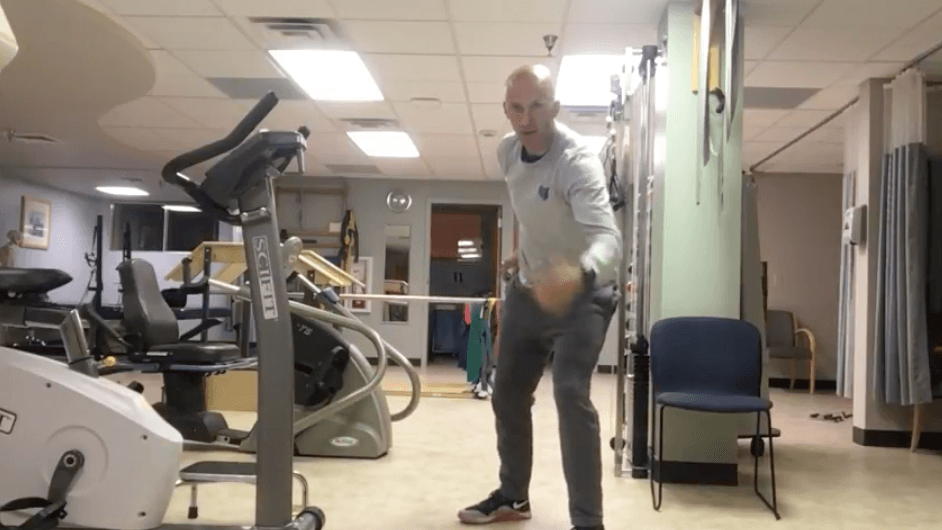
Zac: Man, when you have that wonderful southern accent though it helps.
Randy: it helps when you sound like Joel Osteen
Zac: Yeah it does.
What’s next for Randy
Randy: I’m gonna stay working for Kai and go to Susanville, CA after a three week break.
Zac: Got any big plans for your three week break?
Randy: I’m gonna take mom on a road trip back home to Arkansas.
Zac: Nice! Another nice benefit to being a travel PT is when you get to the point you can you can take a lot of time off, which is really, really cool.
Where is the learning brigade taking you right now? What direction are you taking your continuing education from from here on out would you say? What do you need to get better at?
Randy: I really want to get better at medical screening; just making sure that I’m not missing stuff that I should send to another provider. And I’d like to refine my evaluation skills a little bit know. I think I’m gonna head back there. And I’m more into strength and conditioning stuff to review instead of just going on what I’ve learned from doing it myself over the years. Probably good to actually read some stuff.
Zac: Oh for sure for sure. If there’s one thing that PTs don’t read enough of, and that’s not just outpatient but that’s anyone because a lot of these principles are important, is the S&C side of things. Because they don’t teach you how to squat, deadlift, or do many of these things.
Randy: Well, people are doing rowing with a yellow theraband with their 30 year old patient.
Zac: Yeah, yeah. Homie don’t play that. We lift everything in Page, America. Just an FYI.
Sum Up
Dolph was a tremendous source of knowledge for travel PT and psychology, and I hope you got a lot out of this interview.
To summarize:
- Travel PT is a great way to explore the world and pay off student loans
- Don’t be afraid to negotiate with your recruiter
- Take the assignments you feel comfortable with
- Focus on function, not pain
- Remove limiters of fear, anxiety, etc
Are you a traveler? Are you into psychology? Comment below if you wish to offer any insights.
Photo Credits

